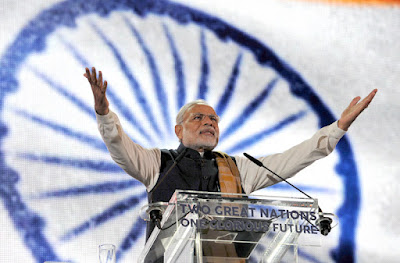As it was expected, Prime Minister Narendra Modi's remarks was due on the formation of I.N.D.I.A and now he has lambasted on the opposition for the same. According to media reports, Prime Minister has criticized the opposition leaders for his exercises in making the alliance naming on the country I.N.D.I.A.
It was almost one decades of the span of time, when Prime Minister Narendra Modi laid BJP put a full stop of the exercises of coalition government in India when BJP get full majority after a long time. Despite the fact, BJP made the government in 2014 under the National Democratic Alliance (NDA).
The stability of coalition governments in India has been a topic of debate for many years. Some argue that coalition governments are inherently unstable, as they are formed by a number of different parties with different ideologies and interests. This can lead to conflict and instability, as the parties may not be able to agree on key policies or decisions.
Others argue that coalition governments can be just as stable as single-party governments, if the parties are able to work together effectively. In fact, there have been a number of successful coalition governments in India, including the National Democratic Alliance (NDA), which has been in power since 2014.
The NDA is a coalition of over 30 different parties, but it has been able to maintain stability by adopting a number of practices. These include:
Having a strong leader who is able to unite the different parties.
Agreeing on a common agenda and set of priorities.
Establishing clear lines of communication between the different parties.
Making compromises when necessary.
The NDA's stability has been helped by the fact that the BJP is the largest party in the coalition, and it has been able to play a dominant role in decision-making. However, the NDA's stability will also depend on the ability of the other parties to work together effectively. If there is too much conflict or disagreement, the coalition could become unstable.
The recent formation of the Indian National Developmental Inclusive Alliance (I.N.D.I.A.) is a sign that the opposition parties are becoming more united in their efforts to challenge the NDA. If the I.N.D.I.A. is able to maintain its unity, it could pose a serious threat to the NDA in the 2024 general election.
In conclusion, the stability of coalition governments in India depends on a number of factors, including the strength of the leader, the agreement on a common agenda, and the ability of the parties to work together effectively. The NDA has been able to maintain stability for over eight years, but the I.N.D.I.A.'s formation could pose a serious challenge to the NDA's dominance in the next general election.


Post a Comment